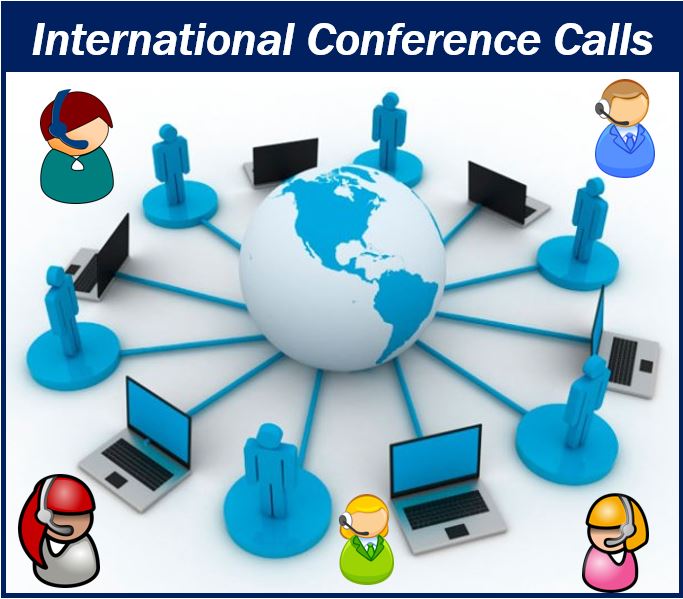 Conference calls are one of the most convenient and prosperous forms of communication in the business world. They allow three or more people to collaborate on a business venture without having to leave their current location. The conference call nixes travel expenses and those business dinners that used to be the norm before this type of communication existed. Today, we have crystal clear international calling services that let people in different countries communicate. For those all important calls, here is a list of five ways to help you create a successful environment.
Conference calls are one of the most convenient and prosperous forms of communication in the business world. They allow three or more people to collaborate on a business venture without having to leave their current location. The conference call nixes travel expenses and those business dinners that used to be the norm before this type of communication existed. Today, we have crystal clear international calling services that let people in different countries communicate. For those all important calls, here is a list of five ways to help you create a successful environment.
1. Prepare
No conference call should ever take place without a great deal of preparation. What kind of topics do you need to discuss? Are there any topics that simply can’t be overlooked? What do you want to discuss first? If you’re the one in charge of the tone and direction of the call, make sure that you have a clear outline of the things you want to accomplish, discuss, and learn from participants.
2. Encouragement
Directing an international conference call requires you to be proactive. If you are proactive you are in control of a situation rather than just responding to it. Your participants are looking to you for the direction and tone of the call. Make sure that you let them know you’re glad that they’re involved, in its importance, and that you appreciate their feedback. Let them ask questions if they need to. Encouraging a better conference call along means showing the utmost respect to all participants, giving them time to be heard, and time to listen to important things you want to say.
3. Location is Key
Make sure that the area in which you make the call is calm and quiet. For example, you wouldn’t want to be outside of a loud sports bar while discussing important details of a contract. Instead, choose a place where you’re at ease, in command of your physical surroundings, and able to ask people to be quiet if you need to. International calls may sometimes have more technical difficulties or fluctuating levels of volume than local ones. Make sure you’re in a place where you can hear everyone speaking clearly.
4. Take Notes
Conference calls are often recorded, but that doesn’t mean you shouldn’t take a few notes along the way about things that are very significant to your agenda. Writing things down helps you see the overall picture of the conversation. It can also trigger other themes that are not in the agenda which you would like to discuss. Additionally, seeing your thoughts and other people’s input in writing can help the flow of the conversation as well.
5. Record the Call
This might not be company policy for everyone, but if at all possible, record the conference call. When so many people are talking at once, it’s often easy to get distracted or simply overlook important pieces of information. By recording the call, you give yourself a chance to go back and listen to it later on and pick up on vital cues you might have missed the first time around.
You will also be able to see where you might have made mistakes or missed opportunities to discuss topics that were important for you. A recording also allows everyone involved to see how helpful or effective they were during the conversation.
Conference calls are one of the business world’s oldest technological tools. They give everyone, of every age, the ability to use a technology they’re familiar with, i.e., telephones, and take part in a productive conversation that helps the business get closer to its goals and fulfill its objectives. In case you still haven’t found the perfect tool for your business, you can visit this page to learn about the best free and paid conference call services.
Your goal is where you expect to be at a certain time in the future. Your objective refers to how you plan to get there. Imagine you are planning a trip. Your goal is your destination while your objective is a detailed description of your journey.
There are more likely to be technological problems with international calls than local ones. Therefore, it is important to test your equipment thoroughly beforehand. Can you hear everything clearly? Are you going to need to perhaps postpone the meeting or simply get a recording of it because of the sound quality? If you follow all of the above guidelines, you’ll have a more productive and respectful international call, and you’ll be able to use all of that information to further your business goals.
__________________________________________________
Interesting article: “What is a Conference?”

